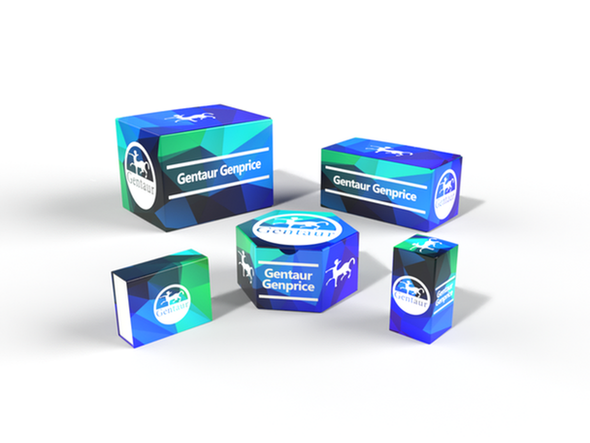Description
PSG4 Antibody | 60-276 | Gentaur UK, US & Europe Distribution
Host: Rabbit
Reactivity: Human
Homology: N/A
Immunogen: This PSG4 antibody is generated from rabbits immunized with a KLH conjugated synthetic peptide between 73-100 amino acids from the N-terminal region of human PSG4.
Research Area: Cell Cycle
Tested Application: WB
Application: For WB starting dilution is: 1:1000
Specificiy: N/A
Positive Control 1: N/A
Positive Control 2: N/A
Positive Control 3: N/A
Positive Control 4: N/A
Positive Control 5: N/A
Positive Control 6: N/A
Molecular Weight: 47 kDa
Validation: N/A
Isoform: N/A
Purification: This antibody is purified through a protein A column, followed by peptide affinity purification.
Clonality: Polyclonal
Clone: N/A
Isotype: Rabbit Ig
Conjugate: Unconjugated
Physical State: Liquid
Buffer: Supplied in PBS with 0.09% (W/V) sodium azide.
Concentration: batch dependent
Storage Condition: Store at 4˚C for three months and -20˚C, stable for up to one year. As with all antibodies care should be taken to avoid repeated freeze thaw cycles. Antibodies should not be exposed to prolonged high temperatures.
Alternate Name: Pregnancy-specific beta-1-glycoprotein 4, PS-beta-G-4, PSBG-4, Pregnancy-specific glycoprotein 4, Pregnancy-specific beta-1-glycoprotein 9, PS-beta-G-9, PSBG-9, Pregnancy-specific glycoprotein 9, PSG4, CGM4, PSG9
User Note: Optimal dilutions for each application to be determined by the researcher.
BACKGROUND: The human pregnancy-specific glycoproteins (PSGs) are a family of proteins that are synthesized in large amounts by placental trophoblasts and released into the maternal circulation during pregnancy. Molecular cloning and analysis of several PSG genes has indicated that the PSGs form a subgroup of the carcinoembryonic antigen (CEA) gene family, which belongs to the immunoglobulin superfamily of genes. Members of the CEA family consist of a single N domain, with structural similarity to the immunoglobulin variable domains, followed by a variable number of immunoglobulin constant-like A and/or B domains. Most PSGs have an arg-gly-asp (RGD) motif, which has been shown to function as an adhesion recognition signal for several integrins, in the N-terminal domain (summary by Teglund et al., 1994 [PubMed 7851896]) . For additional general information about the PSG gene family, see PSG1 (MIM 176390) .




![PSG4 Antibody (N-term) [APR31756G] PSG4 Antibody (N-term) [APR31756G]](https://cdn11.bigcommerce.com/s-1rdwiq712m/images/stencil/590x590/products/62899/63203/gentaur-genprice__26005.1661610467__29809.1661628092__75433.1661676199__77988.1661684280__64362.1661692443__81261.1661865996.png?c=1)

